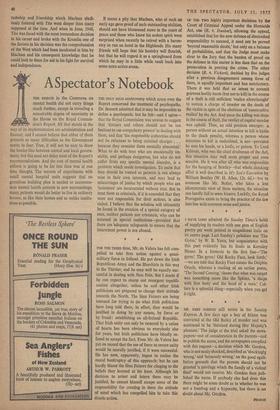OF THE Two highly important decisions by the Court of
Criminal Appeal under the Homicide Act, one (R. v. Dunbar), allowing the appeal, established that for the new defence of diminished responsibility to succeed, it need not be proved `beyond reasonable doubt,' but only on a balance of probabilities, and that the Judge must mako clear to the Jury that the burden of proof on the defence in this matter is less than that on the prosecution in proving the crime. The other decision (R. v. Vickers), decided by five judges after a previous disagreement among three of them, is equally important and less satisfactory. There it was held that an intent to commit grievous bodily harm (but not to kill) in the course of a theft is still sufficient 'malice aforethought' to sustain a charge of murder on the death of the victim in spite of the abolition of 'constructive malice' by the Act. And since the killing was done in the course of theft, the verdict of capital murder was upheld. Thus, an odd position emerges: a person without an actual intention to kill is liable to the death penalty, whereas a person whose intention to kill is undoubted, is not—provided he uses his hands, or a knife, or poison. To Lord Kilinuir, who was the chief draftsman of the Act, this situation may well seem proper and even sensible. He it was after all who was responsible for the hanging of Bentley—that whole_shocking affair is well described in My Son's Execution by, William Bentley (W. H. Allen, 12s. 6d.)—but to someone like Mr. Butler, who takes a less idiosyncratic view of these matters, the situation can hardly fail to seem bizarre. Luckily, the Royal Prerogative exists to bring the practice of the law into line with common sense and justice.














































 Previous page
Previous page